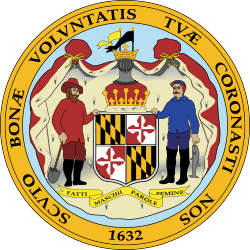| |||||||||||||||||
| |||||||||||||||||
 County results Armstrong: 40–50% 50–60% 60–70% Keating: 40–50% 50–60% 60–70% 80–90% | |||||||||||||||||
| |||||||||||||||||
| Elections in Maryland |
|---|
 |
The 1919 Maryland attorney general election was held on November 6, 1919, in order to elect the attorney general of Maryland. Republican nominee Alexander Armstrong defeated Democratic nominee Thomas J. Keating, Socialist nominee Frederick Haller and Labor nominee Frank N.H. Lang. [1] As of 2022, this is the last time that a Republican was elected as Attorney General in Maryland. [2]

